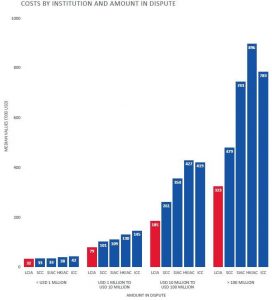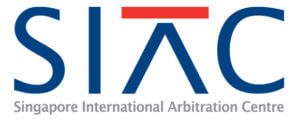When initiating a SIAC arbitration, some of the basic questions most claimants ask are how much a SIAC arbitration costs, when payments are due and whether the costs can be recovered from the opposing party. What Are the Heads of Costs in a SIAC Arbitration? The costs of an arbitration are usually divided into four main groups: (i) fees and costs of […]
ICC Arbitration
International Construction Arbitration
International construction arbitration is a private dispute resolution method for resolving international construction disputes. International construction disputes, as defined by the International Chamber of Commerce (the “ICC“) Commission on International Arbitrations are “all kinds of disputes arising out of projects for construction work, but mainly those relating to the execution of the services (e.g. engineering services) […]
ICC Arbitration Rules
The ICC Rules of Arbitration (“ICC Arbitration Rules”) have had numerous revisions over the years, but there has been a surprising level of continuity since they were first published nearly a century ago. All versions of the ICC Arbitration Rules to date may be downloaded below. The ICC Arbitration Rules were first published in 1922, […]
Answer to the Request for Arbitration Under the ICC Arbitration Rules
The Answer to the Request for Arbitration under the ICC Arbitration Rules is the first written submission that the Respondent to an arbitration must file. The Answer will typically set the main lines of the defence, which will be subsequently developed. The Request for Arbitration as well as the Answer are the documents that will give […]
Advance on Costs in ICC Arbitration
In ICC arbitration, usually upon receipt of the Answer on the Request for Arbitration or the expiry of the time limit for it[1], the Parties are required to pay an advance on costs. This payment is paramount “for the purpose of securing in advance the financial resources necessary for carrying out the arbitration procedure.”[2] The advance […]
Correction of Arbitral Awards in ICC Arbitration
To err is human, so the ICC Arbitration Rules provide for a special mechanism aiming to correct errors in arbitral awards. The correction of arbitral awards in ICC Arbitration is governed by Article 36 of the 2017 ICC Arbitration Rules, which reads: “Article 36: Correction and Interpretation of the Award; Remission of Awards 1) On its own […]
International Arbitration Data 2018: Popularity, Flaws, Diversity and Access to Information
Attention to international arbitration data and metrics is a recent phenomenon. In a recent annual survey, users identified new areas of development that will be at the center of debate for the foreseeable future. International Arbitration Data: Measured Popularity and Flaws The Pros 97% of respondents support arbitration as the preferred method for cross-border disputes. There is […]
The Singapore International Arbitration Centre (“SIAC”)
The Singapore International Arbitration Centre, or SIAC, is a leading arbitration institution that provides a neutral and independent dispute resolution platform to businesses around the world and especially those involved in business in Asia. The SIAC’s main mission is to provide arbitration case management services to parties involved in arbitration proceedings from all over the […]
Aceris Publishes Guide on Arbitration in France and Paris (2018 Edition)
Aceris Law, a Getting the Deal Through National Expert, has recently published the 2018 guide for Arbitration in France, which is available below for consultation or download. The guide examines the most significant issues regarding arbitration in France, in relation to commercial and investment disputes with French elements. It describes investment arbitration issues (bilateral investment […]








